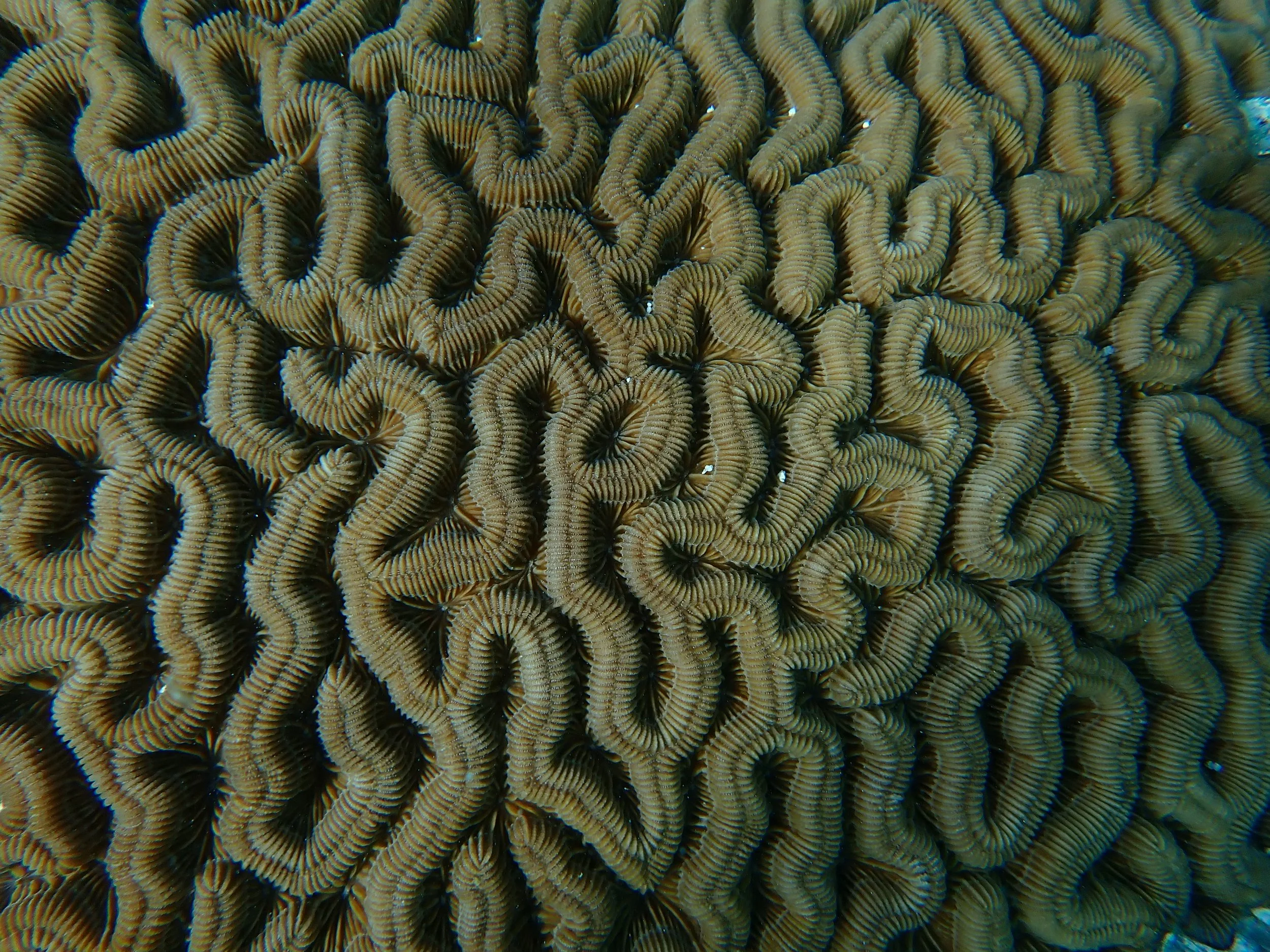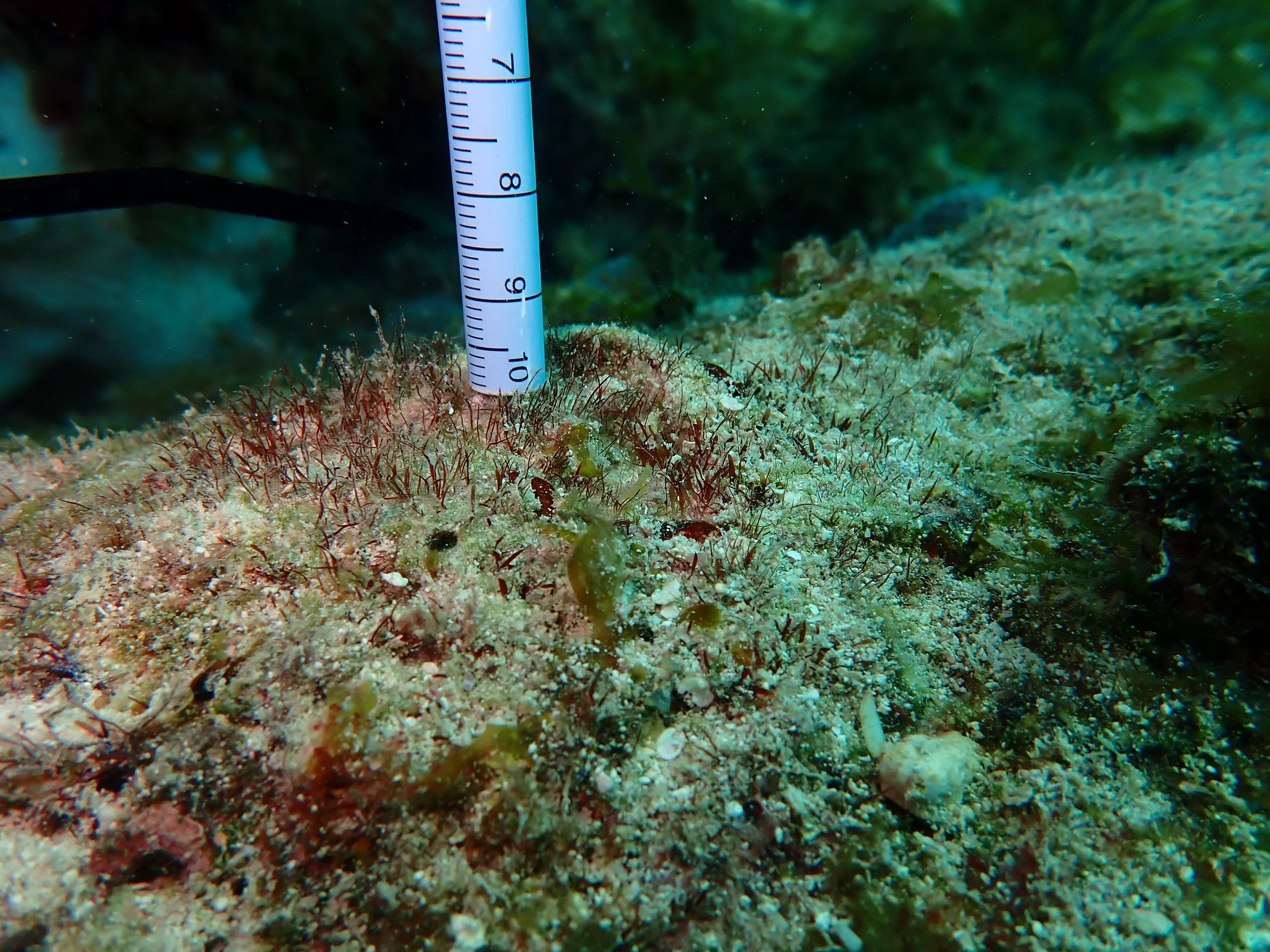Herbivores are an important component of a healthy coral reef ecosystem. Species of parrotfish, sea urchin, and crab can consume nuisance reef algae that compete with corals for space, increasing reef resilience and coral recovery after disturbance. Our lab researches a variety of reef grazers that that occupy different ecological niches and improve settlement substrate quality.
Turf algae are one of the primary benthic space holders on contemporary Florida Reefs and can be apart of a healthy functioning reef system. However, when sediments accumulate in these dense turf patches, they are avoided by grazers, developing into Long Sediment-laden Algal Turfs known as LSAT. These communities can inhibit coral recruitment and survival. Our lab investigates the effects of LSAT on coral reefs to determine how negative effects can be mitigated.
Algae play many roles in marine environments and can be important indicators of water quality and coral reef health. They also have important applications in fisheries and commercial industries. Our lab explores several different types of macroalgae along with their nutrient content, reproductive methods, and their adaptability under the current climate crisis. Our lab also focuses on crustose coralline algae or CCA. This is a calcifying algae that can be a critical settlement cue for coral larvae.






